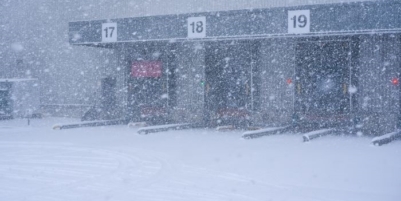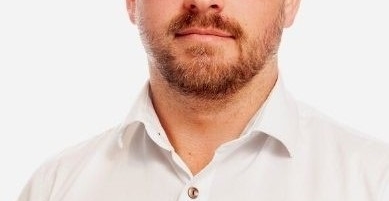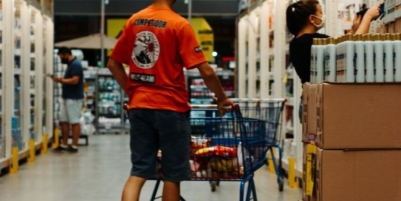-
Rite-Hite unveils new range of hydraulic kits to upgrade and extend dock leveller performance - February 19, 2026
-
REWE and Cimcorp automate fresh supply chain for Berlin supermarkets and stores - February 19, 2026
-
Q1 – A recovery period or time to fix, switch and scale? - February 19, 2026
-
NULOGY’S SHOP FLOOR SOFTWARE TO POWER COMPLETE CO-PACKING’SOPERATIONS - February 13, 2026
-
Why lead generation depends upon good content - February 13, 2026
-
Wallapop and Albatross Sign Strategic Partnership to Bring Real-Time AI Discovery to the Future of Consumer-to-Consumer Commerce - February 12, 2026
-
Thorworld ramp helps Hubergroup to streamline its unloading operation - February 6, 2026
-
TRACKER INNOVATION FROM QUECLINK TO BOOST STOLEN VEHICLE RECOVERY PERFORMANCE - February 4, 2026
-
Flexi Narrow Aisle hits 50! - January 29, 2026
-
DERRY BROS ATTRACTS RECORD NUMBERS OF FREIGHT CUSTOMERS SEEKING CUSTOMS SUPPORT - January 29, 2026
Already popular in medical facilities, disinfecting ultraviolet lighting solutions can benefit other sectors in this time of heightened sanitation measures.
LEDVANCE is showcasing a range of UV-C products that are designed to bring disinfecting light solutions to even more industries. The LEDVANCE T8 UV-C and the Linear Housing UV-C Sensor can be installed in offices, hotels, shops, and other public spaces to make employees feel safer when working. These products benefit fully from LEDVANCE’s track record of innovation in UV-C lighting, and are backed by the company’s experts who can advise on projects and installations.
Commenting on the range, Steve Stark, Sales Director Trade UK & Ireland, from LEDVANCE said, “UV-C technology is our ace in the fight against COVID-19, yet the implementation of UV-C lamps has been very limited, confined mainly to the food industry, aquariums, wastewater and medical facilities. However, as COVID-19 continues to remain widespread, there is a demand for UV-C lighting to create virus-free workplaces and prevent contact or airborne spread of the virus. LEDVANCE is in a key position to support with this. The LEDVANCE factory in Smolensk, Russia, has been mass-producing UV-C lamps since 2012 and we hold more than 50 patents in low pressure discharge technology.”
The LEDVANCE T8 UV-C lamps are available in three lengths: 440 millimetres (15 watts / 25 watts), 900 millimetres (30 watts / 55 watts) and 1,200 millimetres (36 watts / 75 watts). They are CCG and ECG compatible and can be mounted on a standard G13 base. These T8 lamps last up to 20 percent longer than competitors’ comparable products (10,800h/L70B50).
The Linear Housing UV-C Sensor comes with an integrated long-lasting ECG (electronic control gear to regulate dimming), which is compatible with LEDVANCE UV-C T8. It has a detection range of up to 150 sqm (depending on the height of the installation). Its IR Sensor Safety Kit gives a 30 second delay at start-up and switches off the lamp as soon as people are detected. An anti-UV coating covers the lamp holder, screws and plastic parts. The Linear Housing UV-C Sensor is available in two lengths: 440 millimetres (18 watts) and 900 millimetres (33 watts).
About UV-C Light
Ultraviolet radiation, UV for short, is divided into four ranges according to its wavelength. Light with a wavelength between 100 and 280 nanometres is classified as UV-C light. As it does not occur naturally on Earth, UV-C light is able to kill bacteria and viruses by damaging their DNA. Compared to other methods of disinfection, UV-C light has a number of advantages. For instance, it does not require chemicals or toxic compounds, and pathogens are unable to form resistance to its radiation. Though the pathogens are rendered harmless in a matter of seconds, the treatment’s short duration does not change the properties of a product or leave residue and discolouration on surfaces.
UV-C installations must be supervised by professionals
UV-C sources are dangerous (risk class RG3 according to standard NF EN 62471). The UV radiation they emit expose risks to skin (burns) but also to the cornea and retina. UV-C radiation has no immediate effects. As a result, the user may be unknowingly exposed to irradiation for an extended period of time. Harmful effects usually appear within 24 hours of exposure. The severity is determined by the intensity of irradiation, the duration of exposure and the cumulative exposure.
The installation and use of UV-C products must therefore be reserved for professionals who have received specific training on the risks of UV-C radiation as well as on the safety measures required by law in order to adequately protect humans, animals, plants and the environment from harmful effects. During the installation, adequate shields and safeguards must be in place. These include presence detection sensors and timers.
LEDVANCE lighting solutions come in environmentally friendly cardboard packaging with all relevant product information immediately visible on the outside of the box.

































